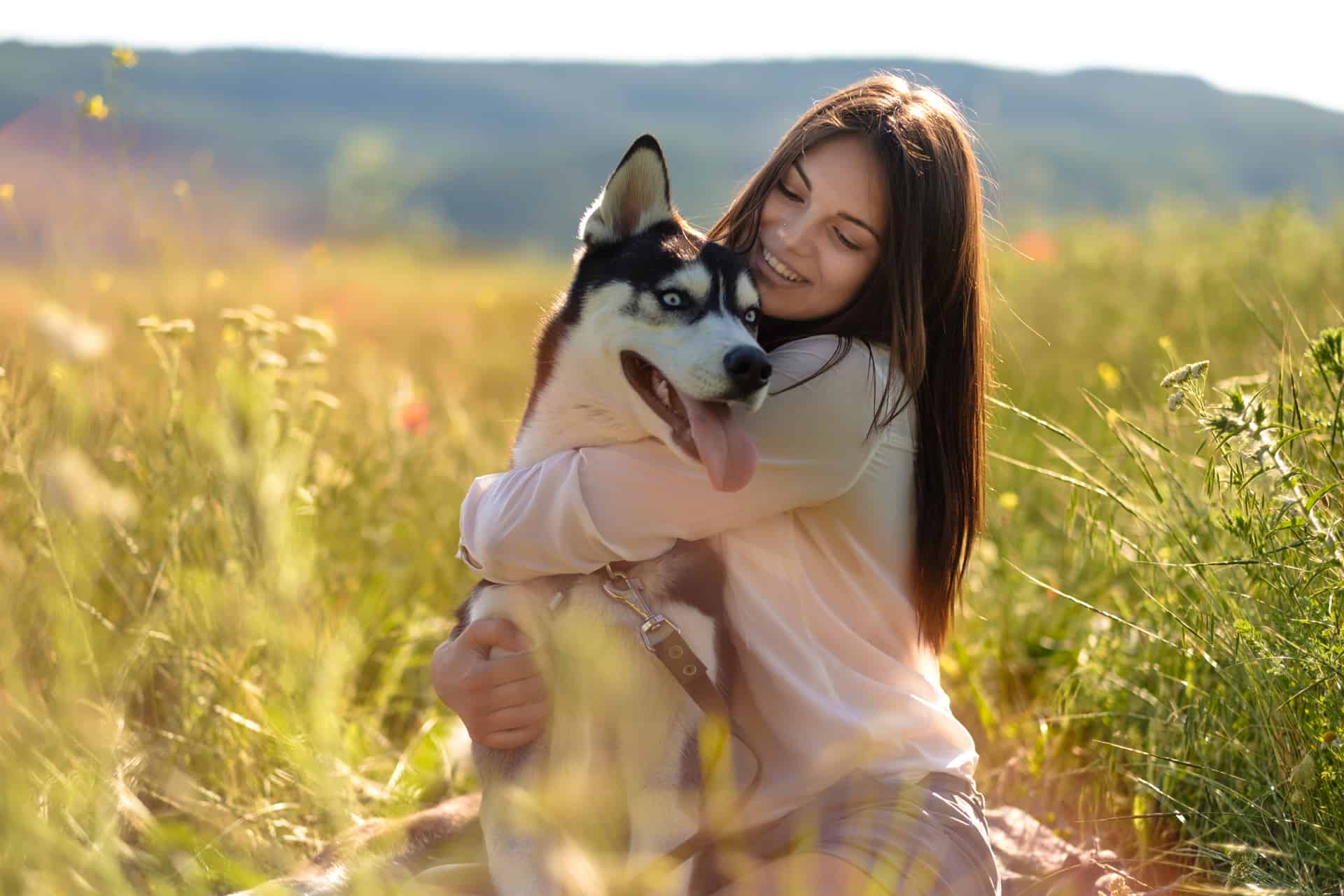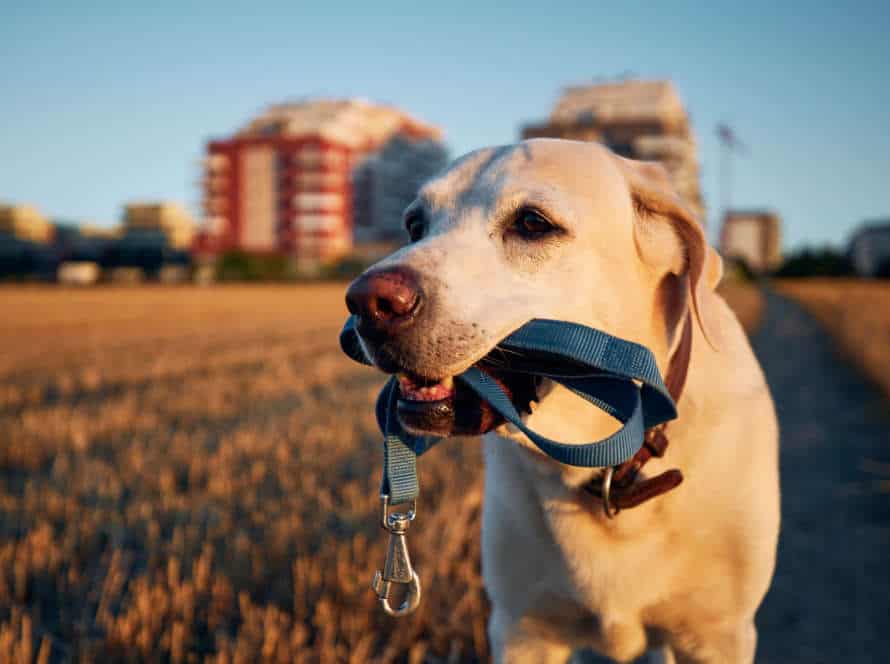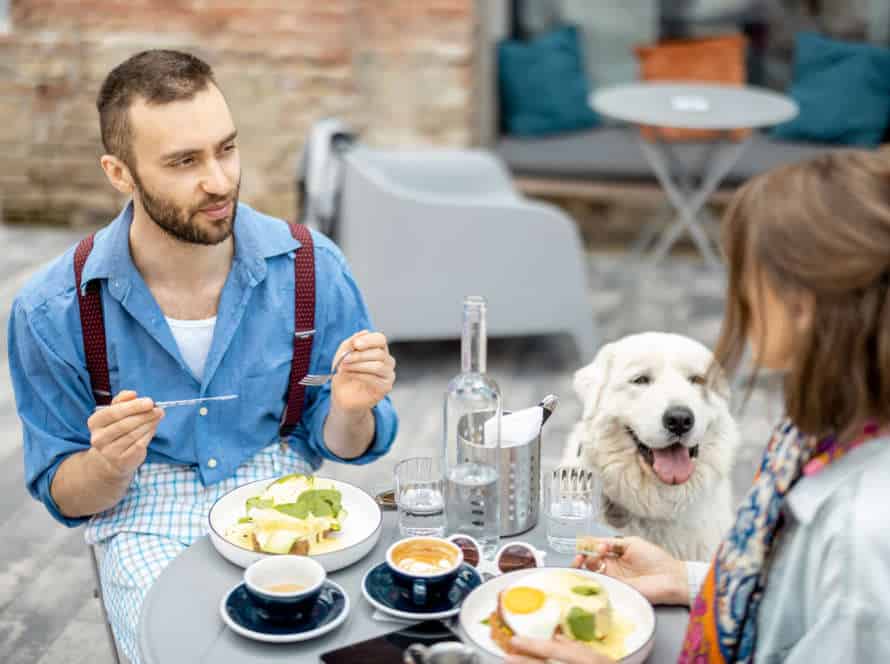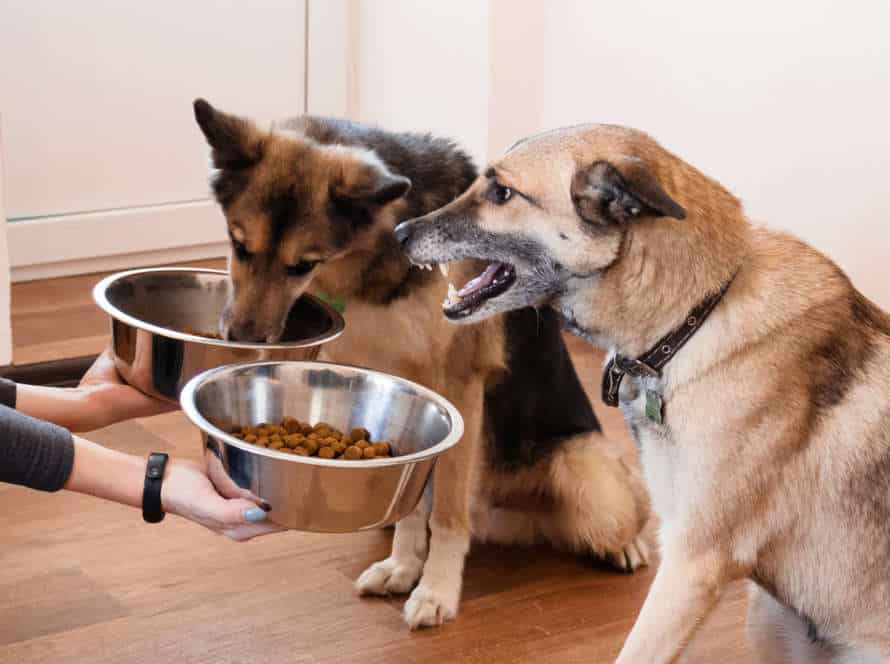Navigating Socialization Challenges in Adult Dogs
Socialization troubles can crop up with adult doggos that weren’t properly socialized as pups. But, with patience and regularity, these issues can be addressed and improved. Here are some ideas on how to handle socialization issues with adult dogs:
- Take it slow – begin by getting your pup to interact with a single other dog or person.
- Be encouraging – reward your dog with treats, praise, or playthings when they show good behavior during socialization.
- Be consistent – often introduce your pup to new people, animals, and places to help them develop their socialization skills.
- Get help – if you’re having difficulty tackling your pup’s socialization problems, think about getting a professional canine trainer or behaviorist.
Don’t forget, socializing isn’t a one-time thing. It requires patience and dedication. With continual socialization and positive reinforcement, your adult dog can become more relaxed and confident when they’re around other creatures.
Signs Your Adult Dog Needs Socialization
Socializing is vital for both puppies and adult dogs’ long-term contentment. Grown-up dogs may not react to fresh people, creatures, or conditions the same way a pup would. This can be a sign they need extra aid. Let’s check out some signs that your adult dog requires socialization.
Barking or growling at strangers or visitors
Barking and growling at strangers? It’s a sign that your adult pup needs socializing. Reason? Fear, anxiety or lack of exposure to new people and scenarios.
Here’s how to help:
- Gradually expose them: Use positive reinforcement when introducing your pup to new people and places.
- Obedience training: Teach them basic commands like ‘sit’, ‘stay’, and ‘come’. That boosts confidence, and reduces anxiousness in new environments.
- Playtime: Play fetch or take a walk in a new place. That helps reduce their stress and builds self-assurance.
- Seek professional help: If the behavior doesn’t improve, a pro trainer or behaviorist can provide guidance and support.
With patience, consistency and positive reinforcement, you can socialize your adult dog and create a strong bond.
Aggression towards other dogs
Aggression towards other pooches is a huge warning sign that your adult pup may need proper socialization training. Unsocialized canines can feel scared, uneasy, and scared in social situations, which leads them to display aggressive behavior towards other dogs.
Here are some clues that show the necessity for socialization for your pup:
- Your dog barks, growls, or lunges when around other dogs.
- Your dog’s ears flatten, their hackles rise, or their body stiffens.
- Your pup tries to escape or avoids other dogs.
- Your pup overreacts or gets super excited when seeing other dogs, like jumping or being overly protective.
- Your pup has difficulty or becomes aggressive during feeding or when guarding objects, spaces, or people.
If you see any of these behaviors, you should start socialization training without delay to help your fur-baby get over their fear and aggression towards other canines.
Pro Tip: Consult with an experienced dog trainer or behaviorist to get specialized advice on developing an ideal socialization program tailored to your pup’s needs.
Hiding or cowering in new environments
If your adult dog hides or cowers in new places, it’s a sign they need socialization. They may be scared or uneasy.
For help, try these tips:
- Start with low-stress environments like home and yard.
- Introduce one thing at a time; let the dog adjust before moving on.
- Use treats and praise for good behavior.
- If there’s aggressive or scared behavior, get a professional trainer.
Remember: regular socialization helps adult dogs feel ok in new places.
Understanding Adult Dog Socialization Techniques
Adult dog socialization – it ain’t easy! Knowledge, patience, and consistency are key. Adult dogs have had less exposure to unfamiliar people and situations, making socializing them a bit trickier than puppies. But don’t worry, with the right techniques and training, it’s still doable. Let’s take a look at the various approaches to help adult dogs with their socialization struggles.
Attend Positive Reinforcement Training Classes
Positive reinforcement training classes can be a great way to help adult dogs learn socialization and obedience. They can give structure to both the dog and the owner and create a nice atmosphere for learning. Here’s how they can assist with adult dog socialization:
- Experienced trainers help expose dogs to new people and other dogs in a supervised environment.
- Teach them basic commands like “sit,” “stay,” “come,” and “heel.”
- Use rewards and compliments to reinforce good behavior.
- Address any fear or aggressive behavior and find ways to reduce it.
- Provide a safe, relaxed place for your dog to be around others.
By joining positive reinforcement classes, dog owners can make a strong base for an adult dog that’s both healthy and happy.
Introducing your dog to New People
Introducing your pup to new faces can be tough, especially if they haven’t been around humans much. To help them adjust, here are some tips:
- Begin slowly. Introduce your dog to a few familiar people in a relaxed atmosphere.
- Use rewards. Reward your pup with treats when they do something good.
- Let ’em lead. Let your pup go at their own pace. Don’t push ’em into anything that may be too much.
- Keep it up. Consistently expose them to new people and situations.
- Get help. If your pup shows aggression or fear, get professional help from a behaviorist or trainer.
Introducing your Dog to New Dogs
Introducing your adult dog to new pals can be tricky, but with planning and patience, it can be a great experience for both your pup and you. Here are adult dog socialization techniques that can help:
- Gradual Exposures – Introducing dogs in a calm and controlled environment is key.
- Neutral Territory – Selecting a location without territorial issues helps the dogs to focus on each other.
- Supervision and Rewards – Watching them closely and rewarding positive behavior encourages good habits and builds a positive bond.
Socializing adult dogs might take time and effort, but it leads to a happier and more social pup in the end.
Handling Socialization Challenges in Adult Dogs
Adult canines typically experience socialization issues, which can make them tricky to manage. Rescue pups and those that have been alone for ages are apt to struggle the most. Even in the best of conditions, adult dogs may struggle to feel at ease around humans or other pooches.
Let’s discuss tactics for tackling socialization issues with adult dogs!
Taking a Break When Overwhelmed
Taking breaks when overwhelmed is key for adult dogs to face socialization struggles. Too much socialization can be tiring for adult dogs and result in anxious behavior.
Here are some tips to deal with socialization hurdles in adult dogs:
- Monitor your dog’s behavior in these settings closely. If you notice signs of anxiety, such as panting, trembling, or cowering, it’s time to take a break.
- Find a silent spot away from people and other dogs where your pup can rest and cool off. Provide your pup with lots of water and a comfortable spot to relax.
- Once your pup has had some time to relax, reintroduce them to socialization scenarios bit by bit and watch their behavior.
- Always prioritize your pup’s welfare over socialization goals.
With patience and determination, you can assist your adult dog to get through socialization issues successfully.
Slowly Graduating Socialization Experiences
Gradually introducing socialization experiences is key when tackling socialization obstacles in adult dogs. Dogs who haven’t been socialized or had bad social experiences need a soft and slow introduction to new activities and people.
Follow these tips when socializing adult dogs:
- Begin softly and in a controlled place, like a calm room, with one or two people around.
- Introduce fresh happenings step by step, allowing the dog to take in each situation in its own time.
- Utilize positive reinforcement to reward the dog for their tranquil and curious attitude.
- If the dog gets too overwhelmed, remove them from the situation and try again with a less stimulating atmosphere or less exposure to new stimuli.
- If your dog shows aggressive behavior during socialization attempts, look for professional help.
Remember to stay patient and gentle when socializing adult dogs. Little by little socialization experiences can help them learn to be relaxed and confident in novel environments, decreasing the chance of anxiety or aggression later on.
Working with Professional Dog Trainers
Socializing adult dogs can be tough. But pro dog trainers can help. Here’s how to work with them for success:
- Research and find a good one with experience in adult dog socialization.
- Schedule an initial consultation.
- Talk about the pup’s needs and challenges.
- Create a tailor-made training plan.
- Attend training sessions with the pup and take part in the process.
- Communicate openly if problems come up.
- Patience and consistency are essential.
Pro tip: Don’t wait until there’s a big problem. Early help saves time, money and stress.
Mental Health and Socialization in Adult Dogs
Humans aren’t the only ones who grapple with socialization issues. Adult dogs can also have problems. These could range from being scared of loud noises to being uncomfortable around unfamiliar people or environments. But don’t worry! You can foster and nourish your adult pup’s mental health and socialization. Let’s look at what to think about when trying to help them with their challenges.
Benefits of Socialization on Dog’s Mental Health
Socialization is a must for adult doggy mental health. Regular activities can enhance behavior and lower anxiety. Benefits? Here they are!
- Eases anxiety and aggression – Interacting with people and other pups lowers worry and potential aggressive actions.
- Boosts confidence – Exposure to various settings, people, and animals while they are young makes them more confident than those who stay isolated.
- Improves cognitive development – Socialization improves a pup’s mental abilities, such as spatial intelligence, problem-solving, and thinking.
Even though the benefits are clear, socializing adult dogs can be tough. Slow introductions and positive reinforcement are the keys to success.
Importance of Early Socialization Training
Early socialization training is vital for adult dogs’ mental health and socialization. This helps them learn to interact with other animals, people, and their environment. We should start this training as soon as possible, since the window closes by a dog’s 16th week. But, socialization training can still be useful for adult dogs. Here are the key benefits:
- Reduced aggression and anxiety.
- Better behavior in social situations.
- More adaptability to new places and changes.
- Greater chance of finding a permanent home in a rescue or shelter.
Socializing adult dogs takes more time, may need a professional, and may have hurdles. But, it pays off in the end.
Maintaining the Socialization in Adult Dogs
Socializing adult dogs is critical for their mental health and overall wellbeing. It allows them to adapt to different people, dogs, and environments while feeling safe.
Figuring out how to socialize an adult dog can be tough, but here are some tips to help:
- Be consistent – figure out the level of socialization your dog needs and gradually expose them to new experiences.
- Be patient – allow them time to get used to change.
- Use positive reinforcement – reward good behavior with treats, toys, and love.
- Seek professional help – if they are having trouble, consult a vet or animal behaviorist.
- Be flexible – adjust to your dog’s individual needs during the socialization process.
Overcoming Common Myths and Misconceptions on Adult Dog Socialization
Adult dog socialization can be tricky! Unfortunately, many myths and misconceptions are getting in the way of giving our adult dogs the socialization they need. Let’s explore these myths and misconceptions. Also, let’s look at ways to help your adult dog get used to people and other animals.
Myth 1: Adult dogs are incapable of learning new socialization skills
Myth 1: Adult dogs can’t learn new socialization skills – not true! They can – with patience, encouragement, and consistency from their owners.
Many adult dogs have already had the critical socialization period as puppies, so they have a base of social skills to build on. Here are some tips:
- Start slow – introduce your dog to new people, places, and things gradually.
- Use positive reinforcement to reward for good social behavior.
- Be patient and consistent – it may take time for adult dogs to adjust to new experiences.
- If your dog had negative experiences in the past, get professional help from a certified dog trainer to help overcome any socialization issues.
Myth 2: Only Certain Breeds Need Socialization
Myth 2: Some breeds don’t need socialization. This is wrong. All dogs, no matter their breed or age, need socialization.
Socialization helps build confidence, reduce aggression and anxiety, and stop behavior problems.
Though some breeds are more social, all dogs must have socialization to grow up happy and healthy.
Don’t forget this important part of training and care. Make socialization a priority. Get help from a pro if you need it.
Myth 3: Aggressive Dogs Should Not Be Socialized
One of the most common myths is that aggressive dogs should not be socialized. But, this isn’t true! Socialization is a must for all dogs. It can even help reduce aggressive behavior.
By introducing your pup to new situations, people, and animals in a controlled way, it can help build trust and confidence.
It is important to always prioritize safety and work with an experienced trainer in order to have a personalized plan.
With patience and consistent training, many aggressive dogs can lead happy and socialized lives!
Frequently Asked Questions
Q: What are some common socialization challenges that adult dogs face?
A: Adult dogs may struggle with fear or aggression towards unfamiliar dogs or people, separation anxiety, or difficulty adjusting to new environments.
Q: Can adult dogs still benefit from socialization?
A: Yes, socialization is a lifelong process and adult dogs can still learn to feel more comfortable and confident in new situations.
Q: How can I help my adult dog socialize?
A: You can start by gradually exposing them to new environments, people, and dogs in a controlled and positive manner. Professional training or behavior modification may also be helpful.
Q: What should I do if my adult dog shows aggression towards other dogs or people?
A: Immediate safety measures should be taken, such as using a muzzle or restraining the dog. Seek professional help from a certified dog trainer or behaviorist to address the underlying cause of the aggression.
Q: Can socialization help prevent behavior problems in adult dogs?
A: Yes, proper socialization can help prevent behavior problems such as fear, anxiety, and aggression towards people or other dogs.
Q: Is it too late to socialize an adult dog?
A: It is never too late to socialize an adult dog. With patience, consistency, and positive reinforcement, even the most fearful or anxious adult dog can learn to feel more comfortable and confident in new situations.







